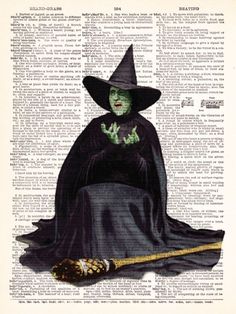Witches and Paganists: In Search of a Term February 22, 2016
Author: Beach Combing | in : Contemporary, Medieval, Modern , trackback
A terminological problem that readers might be able to help with: drbeachcombing At yahoo DOT com. Historians of witchcraft break down into two categories. The vast majority believe that the witch craze was essentially all a horrible misunderstanding and that the men and women found guilty of crimes were innocents. A small minority, but not as small as it was twenty years ago, would claim instead that at least some of these men and women genuinely were ‘witches’ in the sense that they followed a series of non-Christian religious practices. (This does not mean that the ‘witches’ were not also Christian, nor does ‘non-Christian’ necessarily mean ‘pre-Christian’).
The point of reference for the second group (and more importantly the first group while writing off the second group) has been crazy old Margaret Murray, an Egyptologist who decided, in the 1920s, that witches were part of an ancient European fertility cult that had survived into the early modern period. MM was clearly a gifted scholar, but she manipulated the evidence shamefully to make her point: her two books on the subject are a joke; though they did a great deal of damage before they were properly debunked. And even today…
Now here’s the problem. Group two is made up of scholars who believe that ‘witches’ had a series of non-Christian religious beliefs. But none of these (for the simple reason they deal in evidence) would justify this position with reference to mad old Margaret. So what do you call them? Group one would like to refer to them as Neo-Murrayans, which gives an essential truth, but also tars them with a very black brush. It is a bit like saying that you approve of austere 1930s architecture and being told that you are a Fascist: and the temptation to call group one ‘witch deniers’ is strong (but juvenile).
So what would be a better term? Well, there were writers before who had taken similar positions, Michelet and Leland among them, but these were if anything worse than mad Margaret: Beach anyway would rather be a Neo-Murrayian than a Neo-Micheletian or a Neo-Lelandian. There are writers who came after, including Carlo Ginzburg, but Ginzburgian, though an improvement does not really work: Ginzburg is above all a micro-historian and the word would mean something rather different. So let’s leave writers behind…Is the second group of scholars ‘paganist’ perhaps? That makes a connection with pre-Christian Europe that not all would agree with? Not very satisfying. Any other ideas?


